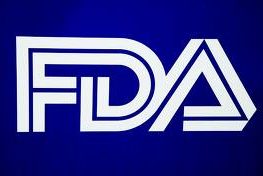FDA Approves First Therapy for Beta Thalassemia

Photo: FDA logo
U.S. Food and Drug Administration has granted marketing approval to Celgene for Reblozyl for the treatment of anemia, or lack of red blood cells, in adult patients with beta thalassemia who require regular red blood cell transfusions.
Beta thalassemia, also called “Cooley’s anemia,” is an inherited blood disorder that reduces the production of hemoglobin, an iron-containing protein in red blood cells that carries oxygen to cells throughout the body. In people with beta thalassemia, low levels of hemoglobin lead to a lack of oxygen in many parts of the body, and anemia, which can cause pale skin, weakness, fatigue, and more serious complications. People with beta thalassemia often need lifelong regimens of chronic blood transfusions for survival and treatment for iron overload due to the transfusions. People with beta thalassemia are also at an increased risk of developing abnormal blood clots.
“When patients receive multiple blood transfusions, there is a risk for iron overload, which can affect many organs,” said Richard Pazdur, director of the FDA’s Oncology Center of Excellence and acting director of the Office of Oncologic Diseases in the FDA’s Center for Drug Evaluation and Research. “Today’s approval provides patients with a therapy that, for the first time, will help decrease the number of blood transfusions.”
The approval of Reblozyl, luspatercept, was based on the results of a phase 3 clinical trial of 336 patients with beta thalassemia who required red blood cell transfusions, of which 112 received a placebo. Twenty-one percent of the patients who received Reblozyl achieved at least a 33 percent reduction in transfusions compared to 4.5 percent of the patients who received a placebo. The transfusion reduction meant that the patient needed fewer transfusions over 12 consecutive weeks while taking Reblozyl.
Common side effects for patients taking Reblozyl were headache, bone pain, joint pain, fatigue, cough, abdominal pain, diarrhea and dizziness. Serious side effects such as hypertension in 10.7 percent of treated patients, and blood clots in 3.6 percent of treated patients, were reported.
The biotech company Acceleron discovered luspatercept in 2008, and partnered with Celgene for its development in 2011. Acceleron will co-promote the drug in the United States. The partners have also filed to have the FDA review its use to treat anemia in myelodysplastic syndrome and are testing it for use as a treatment for the disruption of red blood cell production caused by the rare bone cancer myelofibrosis.
Reblozyl received FDA’s Fast Track designation. It also has Orphan Drug designation, which provides incentives to assist and encourage the development of drugs for rare diseases.
Author: Rare Daily Staff

Stay Connected
Sign up for updates straight to your inbox.
